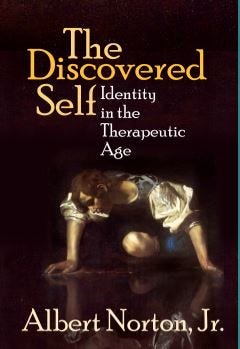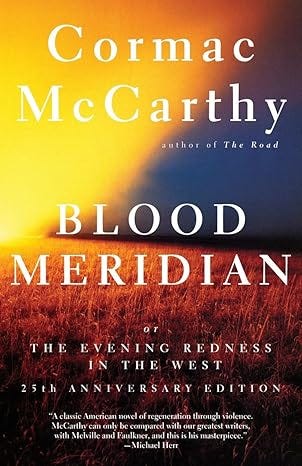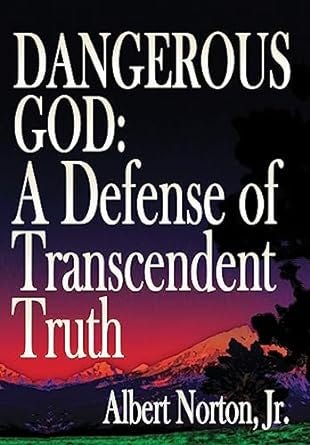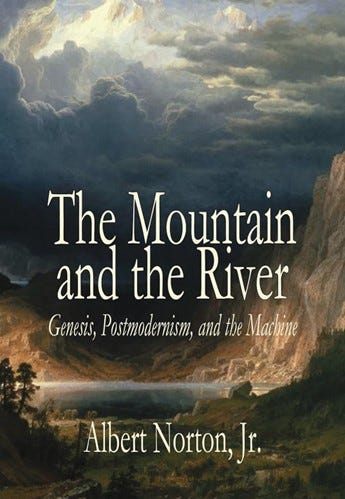The Ciceronian Society
I’m writing on March 14, 2025 from Harrisonburg, Virginia, closing in on the last day of this year’s Ciceronian Society conference. This is an academic conference and I’m recording a few impressions because I’ve never been to one before. If you haven’t either, let this be your peek inside.
First, these people are smart. I’ve learned a lot. But also they’ve expanded my range of intellectual interests. There’s a great big world out there.
Second, it is expected here that you pursue lots of conversations off-line, so to speak, making friendships and professional contacts, but even more importantly for me, diving right into deep philosophical ideas without first engaging in boring small talk.
Third, though ideas are foremost, practical concerns for livelihood are an undercurrent more felt than seen. Most of these folks are academics at a level that pretty much requires publishing in order to stand out as a specialist. Sometimes the specialty is quite narrow. That potentially makes academia a continuously fractalizing endeavor. You can specialize yourself right out of relevance. On the other hand, the wide variety of topics addressed with this conference format goes against the grain of hyper-specialization, prompting you out of whatever intellectual silo you happen to be in.
Some academics break out to more “popular” readership in contrast to “scholarly.” I’m pretty happy with my own output but I don’t know if it counts as “scholarly” by the standards of this group. I imagine it would be considered more popular than scholarly, not to imply I have lots of readers, but rather to say my recent books, though philosophical in nature, are themed for general interest rather than trying to yield novelty in a particular discipline.
I guess I should say what the format is. There are four time blocks each day, aside from plenary sessions. In each block there are multiple sessions, side-by-side. In each session there are several, maybe 3 or 4, presentations. You have to choose one session to go to in each time slot, although I guess nothing prevents you hopping in and out of more than one if for example you want to see one presentation in session A and another in B in another room. The presenters each have 15 or 20 minutes to present their paper. There are about 100 presentations in the whole conference.
To “present your paper” means to speak on the subject of the paper you submitted in advance. The indefatigable chairman of this conference groups the panels for each session on the basis of the papers. So for example, I submitted a paper called Identity in the Therapeutic Age and was grouped with 3 others in a session titled “Philip Rieff: Cultural Conflict, Religion, and the Self.” Rieff is a central figure in understanding the therapeutic worldview. My paper’s title was taken from the subtitle of my book being released April 29th. If you want to see my paper, let me know and I’ll send it to you. It’s of course not what I said at the conference word for word, but it’s what I sent in to get a moment at the podium. If you want to hear my speech live, contact my PR people, I’m available for limited bookings at birthday parties, bar mitzvahs, retirements, weddings, or any other occasion of fun and frivolity.
My impression was that some people actually read their paper out loud, or a shortened version of it. That was the case for the presenters in the first session I attended. I began to worry that this was expected, but thankfully I heard other presenters who did a better job of talking to us rather than reading at us. I planned out what I was going to say the same way I’d do an opening statement in court: a one-page outline to sequence my talking points, but otherwise untied to notes.
Here is a sampling of some of the presentation titles:
Tocqueville and Guizot on America
Science, the God of Modernity: Atomized in Dostoevsky’s Underground
The Importance of Monsters in our Moral Outlook
Privacy, Constitutionalism and the Moral Order
Cormac McCarthy’s Platonic Dialogues
The Calvinistic Influences Upon Madisonian Federalism
There were about a hundred such presentations. I wish I could tell you whether this is typical for academic conferences. I have no idea, as I said this was my first one.
Right now I’m listening to a series of speeches on Christian humanism. I’m actually familiar with most of what I’m hearing but I don’t know what the phrase “Christian humanism” even means, here. It’s being used as a term of art. I heard a session on similarities and differences of America and the Roman republic that makes me want to read deeper into the classics, specifically regarding Rome. I had to dig deep to say why I thought there was a similarity to our political moment. Because I was speaking in the session on the therapeutic, I couldn’t go to a talk in the same time slot in which two of my favorite novels were discussed: Cormac McCarthy’s Blood Meridian, and John Kennedy Toole’s A Confederacy of Dunces. I thought of asking the authors for their papers, but maybe that would be weird. I have to say that some of the presentations have been duds, too arcane or too poorly delivered. But most that I’ve heard have been quite interesting. And you wouldn’t believe the incisiveness of the questions after each presentation.
Now, next day, I’m at a hotel next to Dulles airport. It’s the usual soulless airport hotel but “comfortable,” I guess. I use scare quotes to hint that “comfort” is over-rated. It’s not the point of our existence. The conference carried on into early evening today but without me—I stayed for the paid-for lunch and then departed for what turned out to be a lovely drive over corrugated mountains of middle Virginia with the afternoon sun behind me.
Before leaving, today worked out to be the best day of the conference because I’d done my bit the day before without embarrassing myself or letting down the side, so I was all relaxed and what-not. I skipped the first session and intended to go to the second and then lunch and then leave. When I appeared downstairs where the conference was taking place, hovering around the water and tea stations now devoid of coffee, I was haled by the guy who chaired my panel. He’s wicked smart like everybody else there who’s not me, but added to that is one of those intensely social bundles of volcanic joie-de-vivre who’s old friends with everyone including those he just met. Not stereotypically a hrumph-hrumph philosophe, in other words, but he made up for this lack with his Gandalf-worthy beard. We compared notes on the next session’s offerings (remember there are several alternatives, you have to pick one) and Gandalf had inside knowledge, directing me to one in the same room we’d all gather in for lunch. That would turn out to be serendipitous.
I always thought academic philosophers must be self-important over-fed pipe-smoking types, lacking self-awareness that their contribution to the world doesn’t fix flat tires nor get the butter beans in. Turns out that’s not how they see themselves, nor I them, now. The world only seems to turn on material or mechanics applied to it; on mother’s love or family surrounding it; on political systems and the vox populi applied to it. It actually turns on ideas.
Not to say those things driven by ideas are not all real. Our reverence for God, and deep friendship, and marriage, and the love for a child that changes everything in the instant of birth: it’s all quite true. But not as impregnable against bad ideas as we might think. I mean: look at history. Look at what we get up to when we take our eyes from the Source of being. Read my last couple of books.
After the morning session I ended up also having lunch with the leadership, de jure and de facto, of the Ciceronian Society. They weren’t stuffy or formal at all, in fact they were pretty hilarious, if it’s politic to say that about idea-havers on their day off. So it was fun, but also left me feeling I have no excuse, if I were looking for one, not to continue to try to have an association with this group.
During the 3 days of the conference, the uncomfortable feeling of effortfulness at making connections dissipated when I talked to people about their particular interests. It was easy to do because I mostly approached people whose interests overlapped mine. After the session on Rome and America I was delighted that one of its speakers sat next to me at lunch. He has a profound concern for sustainable development for the least among us. Like my daughter Sarah he works in a do-gooder outfit that is not mired in the conventional throw-more-taxpayer-money-at-it approach. Maybe his group does take public money, I don’t know, but it seems to be more thoughtful than that, if this guy’s any indication.
Aside from all that, though, he’s the kind of 1 in 100 person you meet who will understand a complex idea without you having to dumb it down. I bet you’re tired of spending 30 minutes with someone to have a 5-minute idea understood. That wouldn’t happen to you with this group. The whole time I felt I had to be on my game to give as good as I got. Sometimes they were ahead of me, frankly. I hope I wasn’t their 30-minute guy.
I talked to a spy. Details FYEO. Actually I think he’s the modern-day equivalent, it’s all about data and specialization, so not so sexy. If everyone in that world is like him, you’re in good hands, don’t worry. I got to tell him my experience of having my first child, because his wife and he are expecting their first. When it happens, your identity doesn’t just expand to include “father.” It changes color, shape, and boundaries. Your interests become subordinated to another’s; reinforcing your relationship, if you are at all sensitive to it, with the ultimate Other, God Himself, Maker of heaven and earth.
I talked with a young man who was nervous about how his talk might go. He teaches a classical education curriculum to high-schoolers. Maybe he’s at the conference to “move up in the world,” I don’t know, but I can’t think of anything more important than what he’s already doing. It’s just that darn pay. And I get the school’s position. You can only charge so much to the families of the child who are already paying, involuntarily through taxes, for Marxist indoctrination and dehumanizing institutional automation. Maybe we should support Christian teachers like we do traditional missionaries? What can be more missional?
I had more personal encounters and many more quasi teacher/student encounters. In all those in which I was ostensibly the student, I had no sense that the “teachers” felt they inhabited a hierarchically higher plane. It wasn’t like that. It was ok to challenge them all you wanted, but you’d do so at your peril. These people were smart, did I mention? Most were PhD’s, not that this means smart (it more means highly specialized and absurdly well-read) but these people at the Ciceronian Society were smart by any measure.
So, and maybe this is the biggest take-away: pretty wow that they’d have a goof like me. I don’t mean I didn’t earn it, exactly, just that this group was demonstrably open-minded just by letting this unknown into the clubhouse for a couple of days. “Try new things,” my wife used to tell the kids. I repeated this mantra to myself ruefully as I spent money and time to get to the conference. Usually when you pan for gold, you just get sand. But sometimes you get gold.









